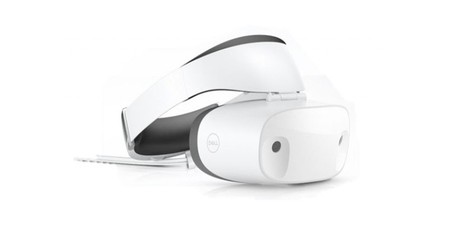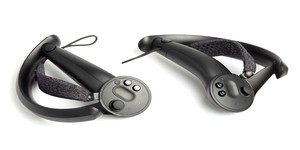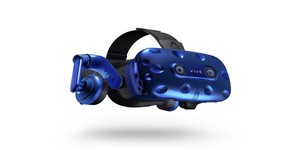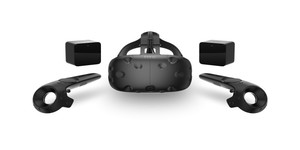Microsoft to add SteamVR support to Windows Mixed Reality
August 29, 2017 | 10:18
Companies: #dell #microsoft #steam #valve

Microsoft has announced a partnership with Valve that will see games and other software packages based on the company's SteamVR platform added to the Windows Mixed Reality ecosystem for compatibility with the upcoming range of low-cost virtual and augmented reality headsets.
'We are on a mission to help empower every person and organisation on the planet to achieve more, and one of the ways we are doing that is through the power of mixed reality,' claims Alex Kipman, Microsoft technical fellow, in a blog post detailing his company's hopes for the Windows Mixed Reality platform. 'As a creator, it is inspiring to see the world embrace mixed reality; to see organisations and developers stretch the boundaries of what we can do with technology. Together we have created the most vibrant mixed reality community out there and it has been phenomenal to share in this journey with our community.'
Many of Kipman's proclamations had to do with how the low-cost headsets based on Microsoft's Windows Mixed Reality platform would improve upon their competitors: Improvements detailed include ease of setup thanks to integrated sensors for tracking position and movement which do not rely on external markers or cameras; the low cost of WMR headsets, confirmed as starting as low as $399 (around £308 excluding taxes) in a bundle with headset and motion-tracking controllers; and a wide range of hardware choices including a two-tier ranking system for pre-built desktops and laptops which will see devices marketed as Windows Mixed Reality PCs capable of 60 frames per second and those sold as Windows Mixed Reality Ultra PCs running at 90 frames per second.
The real meat of Kipman's post, though, comes in the announcement of a deal with Valve which will see games and other software based on the SteamVR platform made compatible with Windows Mixed Reality devices. Combined with news that Microsoft subsidiary 343 Industries is working to 'bring future Halo experiences into mixed reality', it's clear Microsoft is all too aware that it's content that drives sales of virtual reality hardware and is doing its level best to get some ready for the commercial launch of Windows Mixed Reality devices.
The company may have left things a little late, though: Dramatic price cuts by both Oculus VR and HTC have dropped the cost of buying a fully-fledged virtual reality headset and motion control system to the £399 mark - for a limited period, at least - bringing considerably higher specification hardware within reach of those who had previously been eyeing up the supposedly bargain-basement Windows Mixed Reality platform. For those looking purely at virtual reality the Oculus Rift or HTC Vive would be an undeniably better choice; it's only when augmented - or 'mixed' in Microsoft parlance - reality is brought into the equation that the offerings from Microsoft's hardware partners may tip the scales.
At the same time, Dell announced the Visor Windows Mixed Reality Headset would be launching at $349.99 (around £270 excluding taxes) solus or $449.99 (around £347 excluding taxes) with bundled controller later this year. The device will compete directly with previously-announced Windows Mixed Reality headsets from HP and Acer.

MSI MPG Velox 100R Chassis Review
October 14 2021 | 15:04








Want to comment? Please log in.